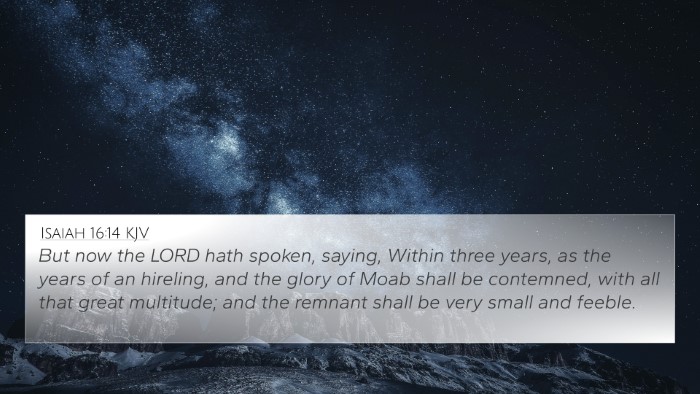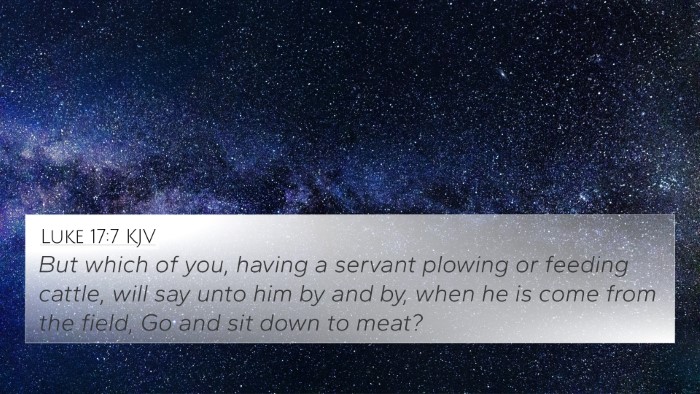Understanding Deuteronomy 15:18
Verse: "It shall not seem hard unto thee, when thou sendest him away free from thee; for he hath been worth a double hired servant to thee, in serving thee six years: and the LORD thy God shall bless thee in all that thou doest."
Deuteronomy 15:18 addresses the treatment of servants in Israelite society, focusing on the principles of justice, mercy, and gratefulness. This verse highlights God's command regarding the release of Hebrew servants after six years of service and emphasizes the blessings that come from adhering to God's laws.
Meaning and Interpretation
The command in this verse comes after discussing the laws about Hebrew servants. Here are some key interpretations derived from public domain commentaries:
- Matthew Henry: Henry emphasizes that the release of servants is not to be seen as a burden but as a joyful occasion, reflecting the merciful heart of God. He suggests that servants should be valued for their contributions, which means treating them with dignity even upon release.
- Albert Barnes: Barnes points out the economic and ethical dimensions of the command. The servant’s worth and service are recognized; they should be rewarded generously when released, which illustrates the principles of fairness and gratitude.
- Adam Clarke: Clarke expands on the theme of divine blessing and the importance of obedience to God's stipulations. He notes that the act of setting a servant free should be accompanied by generous provisions, reflecting God's blessings in response to our obedience.
Key Themes
This verse encapsulates several themes relevant to biblical ethics and human relations:
- Justice: The principle of just treatment and reward for hard work is central here.
- Mercy: Setting someone free after service emphasizes mercy and compassion.
- Gratitude: Recognizing the value of a person's contribution fosters a spirit of thanks.
- Divine Blessing: Obedience to God's commands leads to His blessings in our endeavors.
Connections Between Bible Verses
Deuteronomy 15:18 can be linked to various other scriptures that underscore similar themes:
- Exodus 21:2: Establishes the foundational guidelines for Hebrew servant behavior and expectations.
- Leviticus 25:39-41: Discusses the jubilee year where all servants are released and land returned, paralleling the themes of freedom and restoration.
- Matthew 5:7: "Blessed are the merciful: for they shall obtain mercy," which resonates with the ethical implications of treating others justly.
- James 2:13: Highlights the importance of mercy and willful compliance with God's law, aligning with the themes of Deuteronomy 15:18.
- Galatians 6:7: "For whatsoever a man soweth, that shall he also reap," illustrating the blessings that come from fair and just actions.
- Luke 17:10: "So likewise ye, when ye shall have done all those things which are commanded you, say, We are unprofitable servants," showing humility in service.
- 1 Timothy 6:1-2: Guidance on how servants should honor their masters, providing a broader understanding of the servant-master relationship.
Practical Insights
This verse and its surrounding context offer practical insights for modern application:
- Work Ethics: It encourages integrity and value in work, reminding employers to treat employees with fairness.
- Financial Responsibility: Employers are encouraged to provide adequately for those who have served them.
- Cultivating Mercy: It promotes the idea of mercy regarding others' circumstances, urging us to be compassionate.
- Divine Favor: Adhering to God's commands leads to blessings in all that we undertake.
Conclusion
The instructions in Deuteronomy 15:18 are a vital part of the larger conversation about the treatment of servants and enslaved individuals, revealing significant insights into God's expectations for justice and mercy. Through studying this verse and its cross-references, believers can enhance their understanding of holy living and the importance of gratitude and fairness in interpersonal relationships. Using tools such as a Bible concordance or a cross-reference Bible study guide can deepen this understanding further, allowing individuals to explore the rich tapestry of connections between verses.





